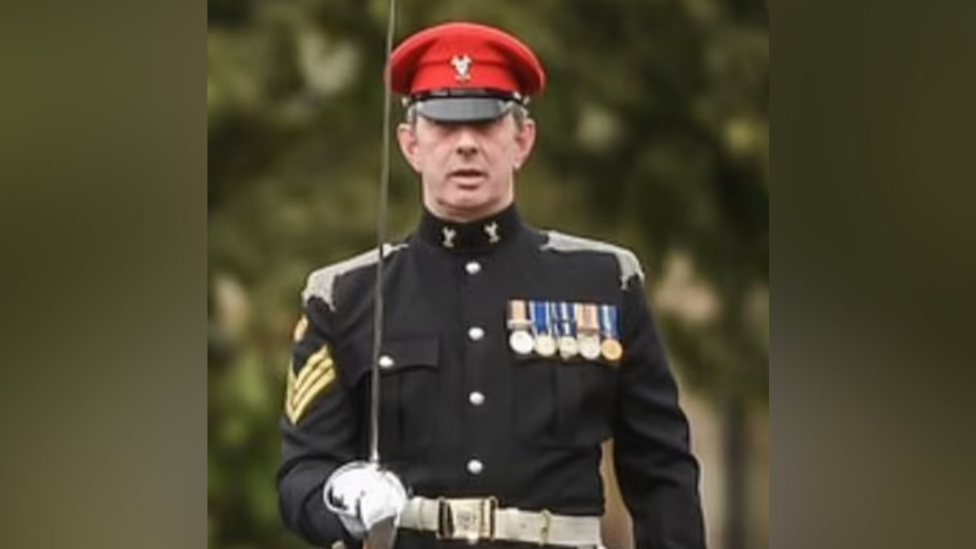Vehicle safety concerns not acted upon - inquest

John McKelvie died from a brain injury after an armoured car he was driving rolled down a hill
- Published
An armoured vehicle which rolled down a hill during a training exercise, killing an occupant, had long-standing safety concerns, an inquest heard.
Staff Sgt John McKelvie, 51, died from a brain injury after the Supacat Jackal crashed at Catterick Garrison in January 2019.
An inquest heard the Ministry of Defence was aware of "credible deficiencies" in the vehicle, with issues discovered nine years before Mr McKelvie’s death.
Although these had been recorded, they had not necessarily been widely shared, the hearing heard.
The inquest, held at Thirsk Racecourse, heard the crash happened at the military base's light vehicle training circuit, where the father-of-three was being instructed.
The 7.6-tonne vehicle should not have been on the circuit, known locally as the "Land of Nod", as it was designed for smaller cars, the hearing heard.
Concerns about the vehicle were recorded during testing in 2010, with 40 "rollover" incidents involving the Jackal later occurring.
The test highlighted issues over the vehicle's stability and the protection afforded to taller drivers if it rolled over, with Mr McKelvie measuring 6ft 4in (1.93m).
Pathologist Dr Jan Lowe told the inquest that Mr McKelvie's head had been subjected to "severe force" as he was "thrown around like a ragdoll".
Senior coroner Jonathan Heath recorded his cause of death as hypoxic brain injury.
Tilt test failure
When questioned by barrister Rory Turnbull, representing Mr McKelvie's family, Wing Cdr Paul Summers told the inquest: "Undoubtedly the Army at the time was not a good safety learning organisation in my view."
Mr Summers revealed safety analysis was not "robust", with accident reporting described as "immature".
He spoke about another significant roll incident at Catterick, with findings not neccessarily shared with the wider Army.
His report found "no evidence of anything being done", despite the vehicle's problems, including a warning the armoured car failed a tilt test when tipped steeply to the right.
Mr Summers said: "Our recommendation was to reconduct the tests and - assuming they were failed in the same manner - to hold a safety course and explain why [the Ministry of Defence] is going to accept them."
Col Graham Shannon, a British Army risk adviser, said Mr McKelvie's family could be "absolutely confident" there would be no further missed learning opportunities.
The hearing heard a service inquiry into the incident had had a "fundamental impact" on the Army.
"The MoD has completely revised its systems and policy to stop that happening again," Mr Shannon said.
Follow BBC Yorkshire on Facebook, external, X (formerly Twitter), external and Instagram, external. Send your story ideas to yorkslincs.news@bbc.co.uk, external